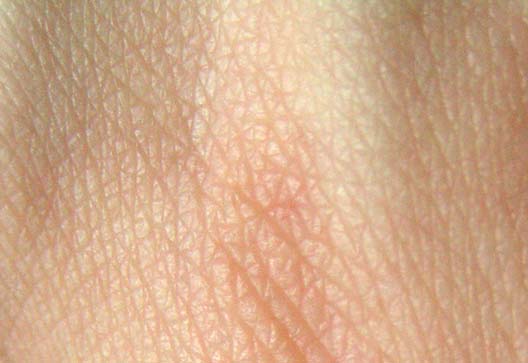




What are you looking for?

Natural supplements for inflammation—easy diet swaps and habits to calm swelling fast. Simple India-friendly tips you can start today.
If your joints feel stiff, your skin flares up, or your tummy feels hot and bloated, inflammation may be active. The good news: simple habits and natural supplements for inflammation can help you feel better, often within days. Start with food, sleep, and hydration; then add targeted herbs and nutrients that support your body’s calming pathways.

Inflammation is your body’s repair response. It rises with infections, injuries, poor sleep, stress, or highly processed food. Short bursts are helpful, but when it stays high, you may notice pain, swelling, brain fog, or acne.

Drink water + electrolytes. Aim for clear urine and steady energy.
Move gently. 20–30 minutes of walking or yoga boosts circulation and reduces stiffness.
Prioritise sleep. 7–9 hours supports recovery.
Build an anti-inflammatory plate. Half vegetables, one quarter protein, one quarter whole grains; add good fats.
Spice smart. Turmeric, ginger, and black pepper can support a calmer body.
Cut triggers. Ultra-processed snacks, sugary drinks, heavy late dinners, and excess alcohol can worsen swelling.
Quick win: swap refined oil fries with roasted veggies in mustard or groundnut oil, add a pinch of turmeric and pepper.
These options are India-friendly and widely used. Always check with a healthcare professional if you’re on medication, pregnant, or nursing.
Turmeric (Curcuma longa) with black pepper — what’s the benefit?
Turmeric’s main active, curcumin, supports the body’s anti-inflammatory response. Black pepper (piperine) may improve absorption. Many people take it with warm milk or in food. This is a common first step in anti-inflammatory diet routines.
Omega-3 (from flaxseed, chia, or fish oil) — why add it?
Omega-3 fats support joint comfort and heart health. They may help balance pro- and anti-inflammatory signals. For vegetarians, flaxseed and chia work well; non-veg eaters may choose fish oil. Omega-3 is a core pick among natural supplements for inflammation.
Ginger — does it calm swelling?
Ginger may support circulation and reduce exercise-related soreness. Add to tea, kadha, or cooking. It pairs well with lemon and honey (for adults).
Boswellia (shallaki) — when is it useful?
Traditional use suggests support for joint comfort and mobility. Many combine boswellia with turmeric for daily stiffness.
Amalaki (Amla) — how does it help?
Amla is rich in vitamin C and has a cooling effect. It can support gut lining and reduce heat in the body, helpful for skin and digestion.
Magnesium — does sleep matter for inflammation?
Poor sleep can push inflammation up. Magnesium (glycinate or citrate) may support relaxation and deep sleep, indirectly helping your body calm down.
Tip: Start one supplement at a time for 2–3 weeks. Track pain, swelling, and energy in a simple diary.
Vegetables: colourful sabzis (bhindi, lauki, beetroot, greens), tomatoes in moderation if they trigger you.
Proteins: moong dal, chana, curd/dahi (if tolerated), eggs, fish, paneer in moderation.
Good fats: nuts, seeds, coconut, mustard or groundnut oil.
Carbs: millets, brown rice, whole-wheat roti; keep portions steady.
Flavour: turmeric, ginger, garlic, cinnamon, jeera, methi, ajwain.
Hydration: water, jeera water, lemon water; limit sugary drinks.
An unhappy gut can drive chronic inflammation and even skin flare-ups. Fibre, fermented foods (if tolerated), and gentle bitters can help. For structured support, see Gut Reset for digestion-first care.
Yes. Stress hormones can keep your body in “alert” mode. Try slow breathing (4-7-8), evening walks, or light stretching. Better sleep calms nervous-system “noise”, which may lower swelling signals over time.
Day 1–2: Hydrate, sleep by 10:30 pm, add turmeric + pepper to meals, 20-minute walk.
Day 3–5: Start omega-3, add a veggie at every meal, reduce sugar, ginger tea after lunch.
Day 6–7: Add boswellia or amla (one at a time), evaluate energy, joint ease, skin calm.
Muscle & joint stiffness: Muscle Mercy may support recovery and comfort after activity.
Skin inflammation & breakouts: Acne SOS is designed to calm skin from within.
Gut-driven heat and bloating: Gut Reset supports digestion, a key lever for whole-body calm.
Hormone-related inflammation: Period Pacifier may ease cramps and mood swings that spike inflammation.
Amiy’s approach blends Bio-Neuromodulation™ (balancing nerve communication) with Complex Plant Elixir™ (synergistic botanicals). The aim is steady, everyday support—not a quick “cure”.
Medical disclaimer: This content is for education only and is not a substitute for professional medical advice. Please consult a qualified healthcare provider for personal care.
Related Reads
treatment for stress incontinence in females: simple, natural steps | Amiy Naturals
How to Moisturize Skin Naturally: Simple Daily Routine | Amiy Naturals
Hydration, sleep, light movement, and an anti-inflammatory diet with turmeric, ginger, and vegetables help. Add omega-3 and manage stress. These basics work together.
Begin with turmeric + black pepper and omega-3. Then consider ginger, boswellia, or amla. Add one at a time for 2–3 weeks and track how you feel.
Often, yes. Balanced plates, fewer ultra-processed foods, and better sleep can make a clear difference. Supplements add support when your routine needs a boost.
It may help, especially with pepper for absorption. Pair with omega-3, gentle exercise, and good sleep for stronger results.
They can. Work on fibre, hydration, and fermented foods (if tolerated). See Gut Reset for structured digestive support.
Natural doesn’t mean “for everyone”. Check interactions if you’re on medicines, or if you’re pregnant/nursing. Start low, go slow, and consult a professional.
If stiffness, post-workout soreness, or desk-job aches slow you down, Muscle Mercy may support recovery and daily comfort.
For heat and bloating that drive systemic inflammation, Gut Reset focuses on digestion first.
If skin flare-ups are your main worry, Acne SOS supports calmer skin from within.
For hormone-linked swelling and cramps, Period Pacifier may help
You can also search for: Best Herbal Supplements For Weight Loss